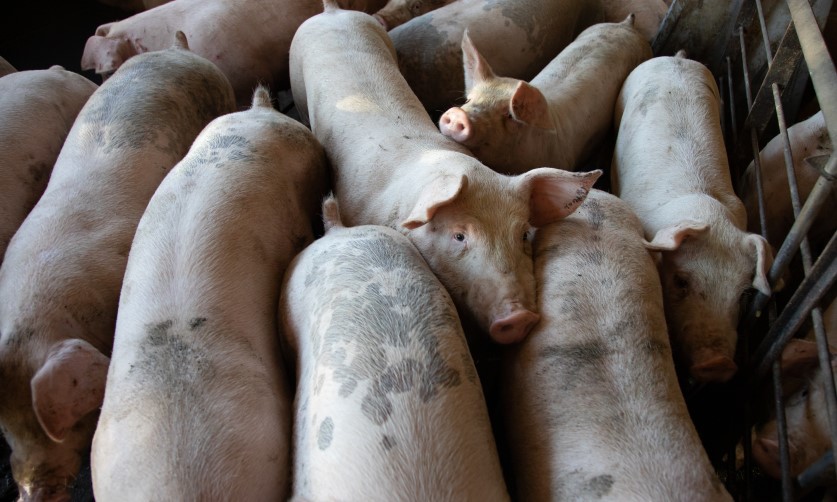Pigmeat producers still making substantial losses
In the last five weeks, the Standard Pig Price (SPP) has risen by almost 20p/kg – some of the largest weekly rises ever recorded – but the huge increases in costs faced by producers means that pig producers are still losing substantial sums of money.

National Farmers’ Union (NFU) Scotland’s Pigs Committee chair Jamie Wyllie estimates that current cost of production, taking surging feed, labour, haulage and energy costs into account is around 204p per kg, meaning that the SPP must break 200p per kilo soon to allow producers to start breaking even after many months of recording losses.
Wyllie said: “While I appreciate that the pig price has risen, and that this week we saw the largest rise in price I have ever seen, we are still a long way from even covering the cost of feed, electricity, diesel, labour and haulage.
“Feed prices alone have increased by 60 per cent since February 2021, with more than one-third of that being directly linked to the dreadful situation that is occurring in Ukraine. With almost 70 per cent of the cost to produce a pig being feed, this unforeseen increase in feed cost has had a devastating affect for the pig farmer.”
Within his own business, despite significant investment in solar and wind energy to produce one-third of his electricity requirements, Wyllie’s energy bill is expected to exceed £500,000. Employing more than 40 people, who are the core of his business, he has increased wages in line with inflation to support them through record increases in the cost of living.
He said: “We have long believed that the retailers have been keeping an unfair share of the final sale price and record profit announcements this week suggests it is the case.
“In the year to date, the UK pig farmer is only getting around 37 percent of the final sale price when, in recent years, it has been up to 42 per cent. This 5 per cent may not sound like very much but it would increase the price paid to the farmer by around 19p per kg.
“The blunt message for retailers and processors is that they must help. Pig farmers need a bigger share of the final price, and we need an increase to what we are paid now. If the price does not make it over £2 per kg soon there won’t be a British industry left.”
There are positive signs however that the industry UK pig meat production was 101,600 tonnes in March, according to data from Defra. This is 5% more than in the same month last year, and 14% more than in February. In the year to date 276,000 tonnes of pigmeat has been produced, 6% more than at the same point a year ago.
‘Irreparable damage’
Speaking to the BBC this morning (19th April), chief executive of British Meat Processors Association Nick Allen gave a mixed review of the circumstances currently affecting the pig sector.
He welcomed the positive increases in pig prices and pig meat production. Allen added that the government’s Skilled Worker visa programme had resulted in “a pipeline of workers coming through” from abroad, and that backlogs in pigs were starting to get cleared.
However, he warned that the industry had been “irreparably damaged” as a result of the ongoing labour shortages and processing issues. Allen said that the pig industry had initially been fooled into thinking that butchers would be added to the Shortage Occupation List (a more streamlined solution to the labour shortage) until it emerged that the Home Office had rejected the advice of its Migration Advisory Committee.
He said: “There is no doubt that this crisis will result in a tremendous restructuring of the pig industry, and I think that has been recognised right the way through [the industry].
“As a consequence of what’s happened, the pig sector in this country will be smaller for a time. How quickly it recovers, or indeed if it does recover, we’ll just have to wait and see.”

 UK lamb exports recover to pre-Brexit levels, whilst imports jump
UK lamb exports recover to pre-Brexit levels, whilst imports jump Avara invests £4m into automation technology
Avara invests £4m into automation technology
